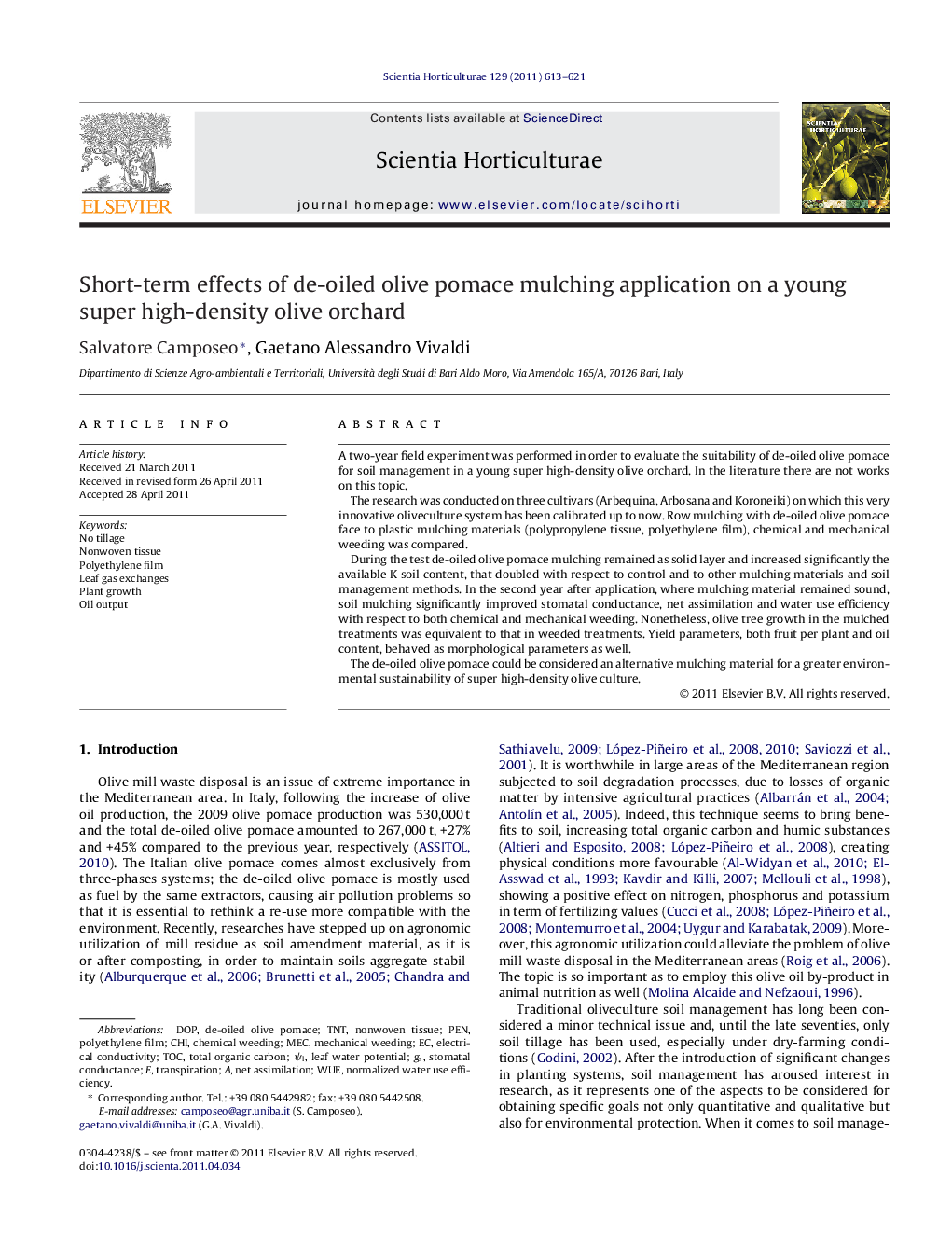| Article ID | Journal | Published Year | Pages | File Type |
|---|---|---|---|---|
| 4568000 | Scientia Horticulturae | 2011 | 9 Pages |
A two-year field experiment was performed in order to evaluate the suitability of de-oiled olive pomace for soil management in a young super high-density olive orchard. In the literature there are not works on this topic.The research was conducted on three cultivars (Arbequina, Arbosana and Koroneiki) on which this very innovative oliveculture system has been calibrated up to now. Row mulching with de-oiled olive pomace face to plastic mulching materials (polypropylene tissue, polyethylene film), chemical and mechanical weeding was compared.During the test de-oiled olive pomace mulching remained as solid layer and increased significantly the available K soil content, that doubled with respect to control and to other mulching materials and soil management methods. In the second year after application, where mulching material remained sound, soil mulching significantly improved stomatal conductance, net assimilation and water use efficiency with respect to both chemical and mechanical weeding. Nonetheless, olive tree growth in the mulched treatments was equivalent to that in weeded treatments. Yield parameters, both fruit per plant and oil content, behaved as morphological parameters as well.The de-oiled olive pomace could be considered an alternative mulching material for a greater environmental sustainability of super high-density olive culture.
► Mulching effects both on soil and plant were evident since the second year.► Only the de-oiled olive pomace mulching enhanced the potassium soil availability. ► All mulching materials improved leaf water status and gas exchanges. ► De-oiled pomace did not show any toxicity effect on plant performances.► De-oiled pomace could be considered a really ecological mulching material.
